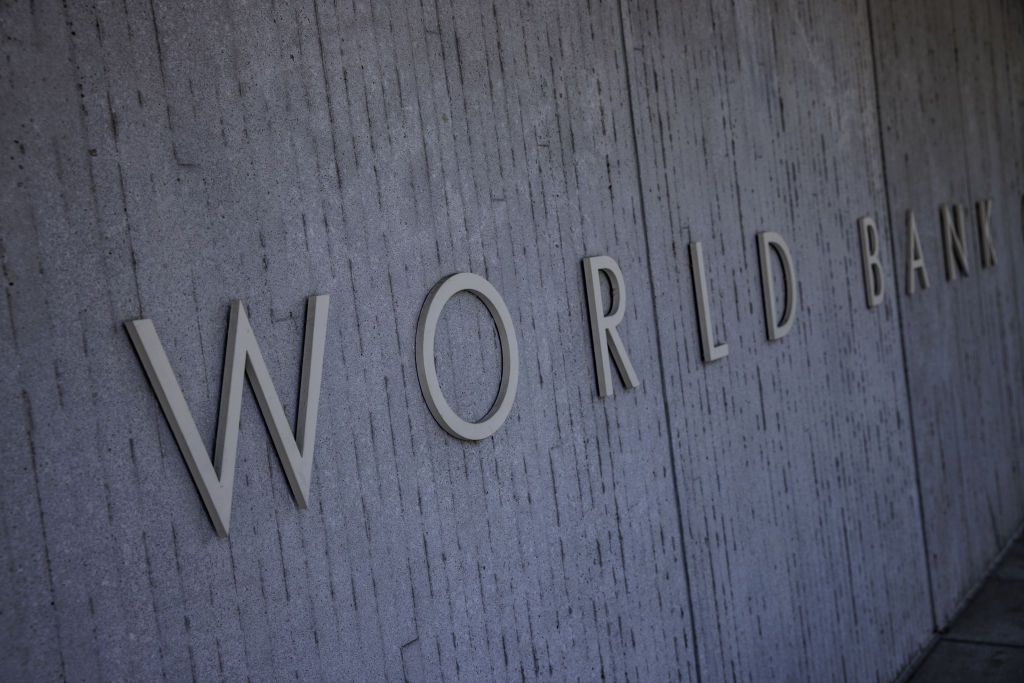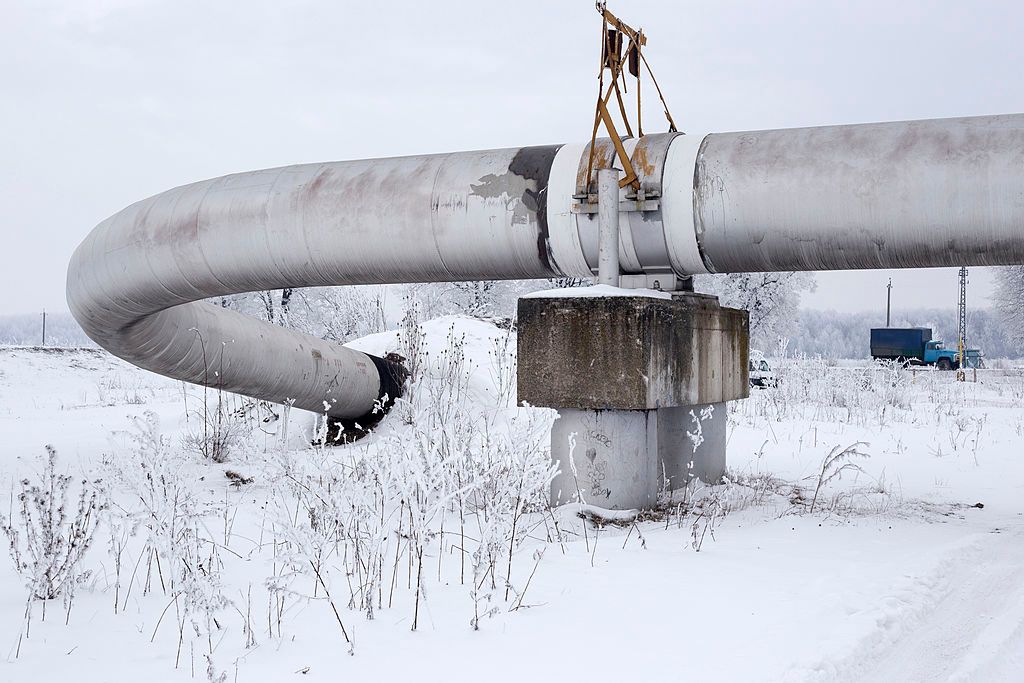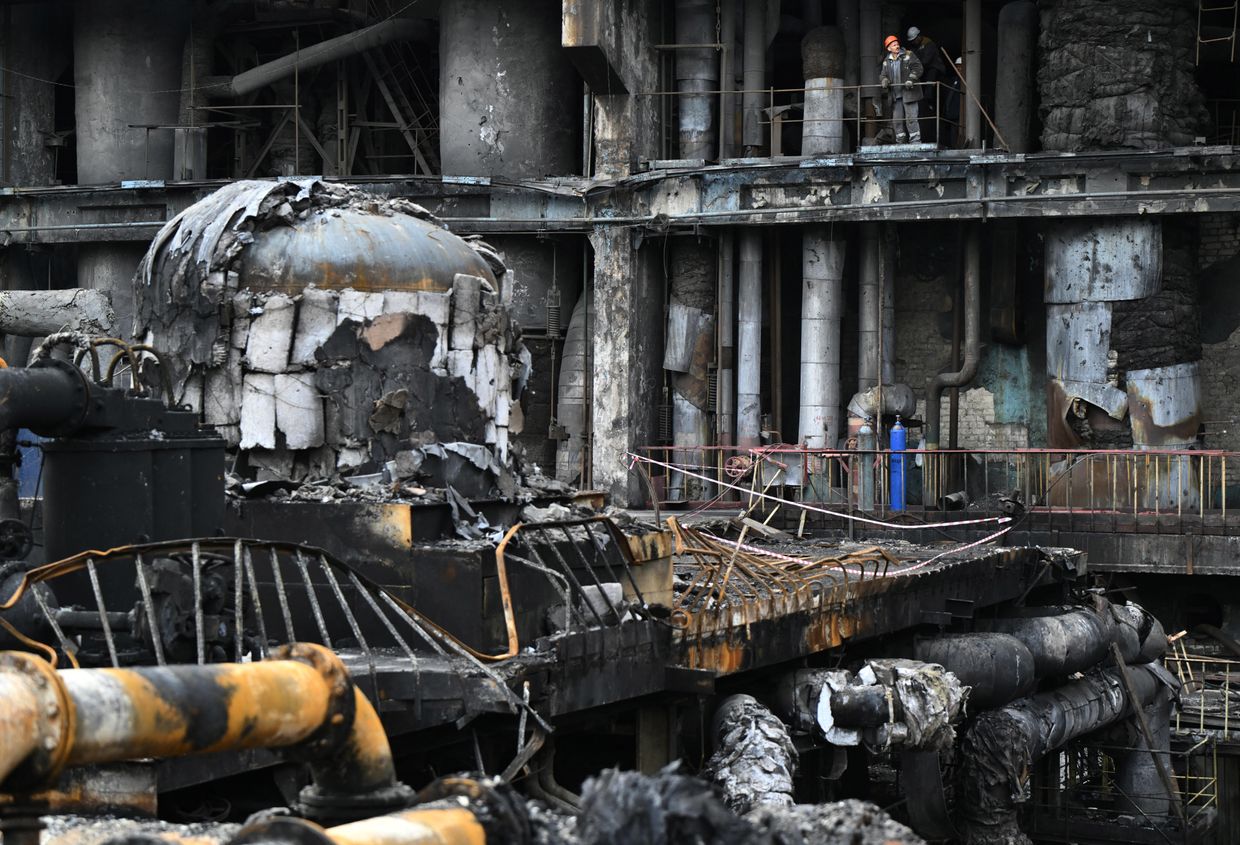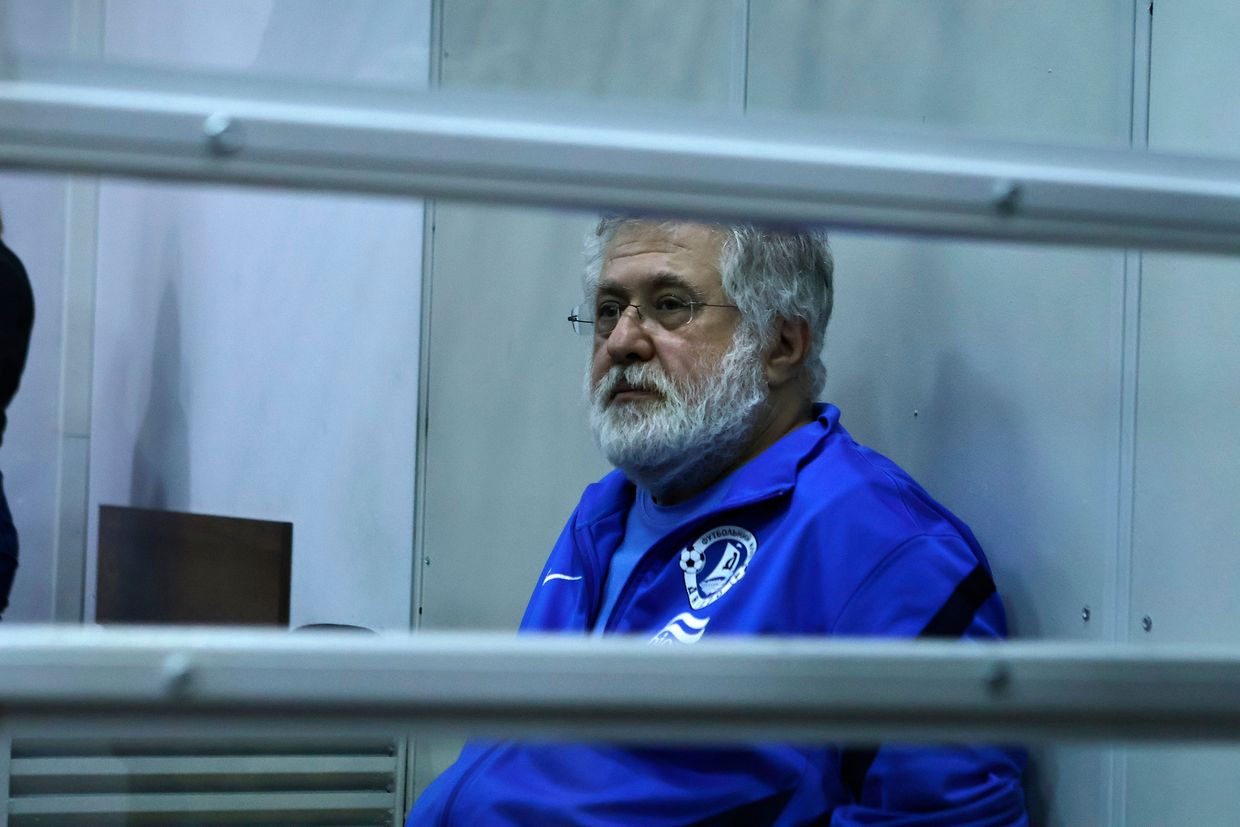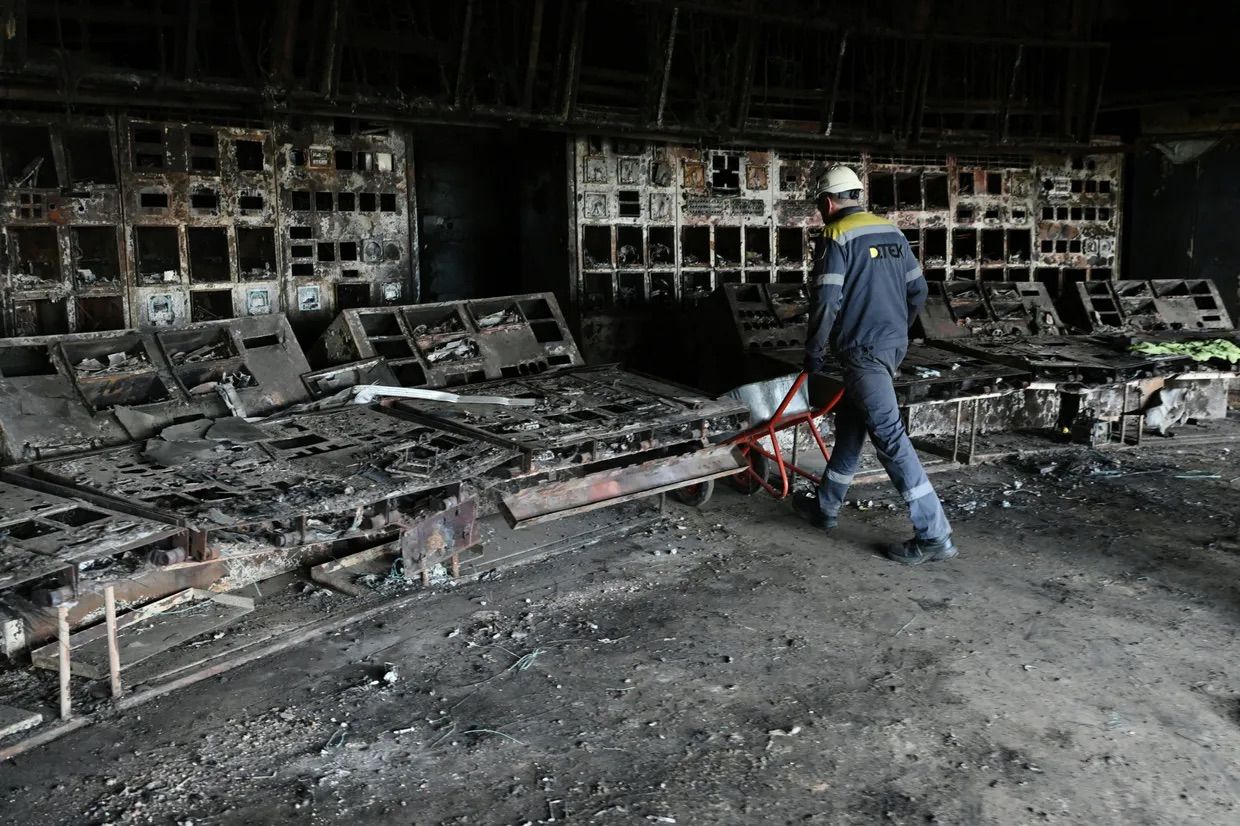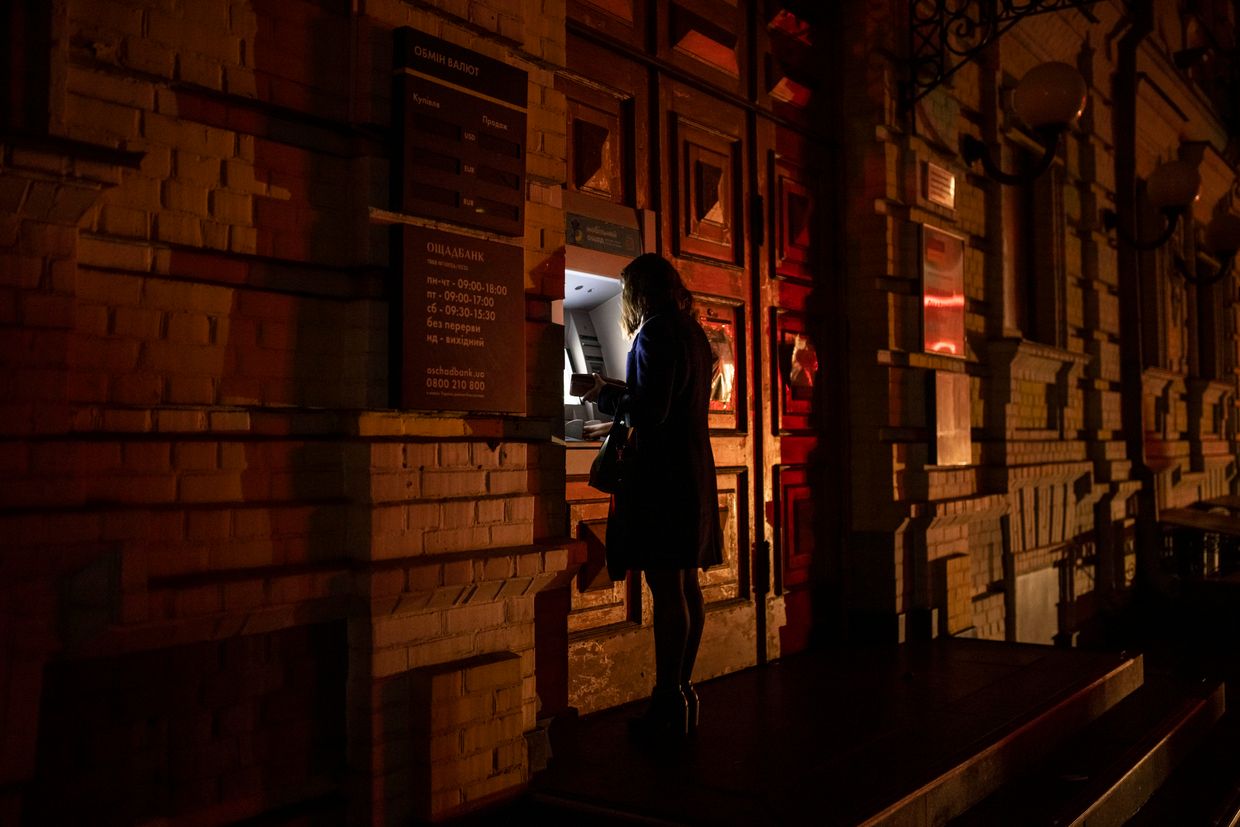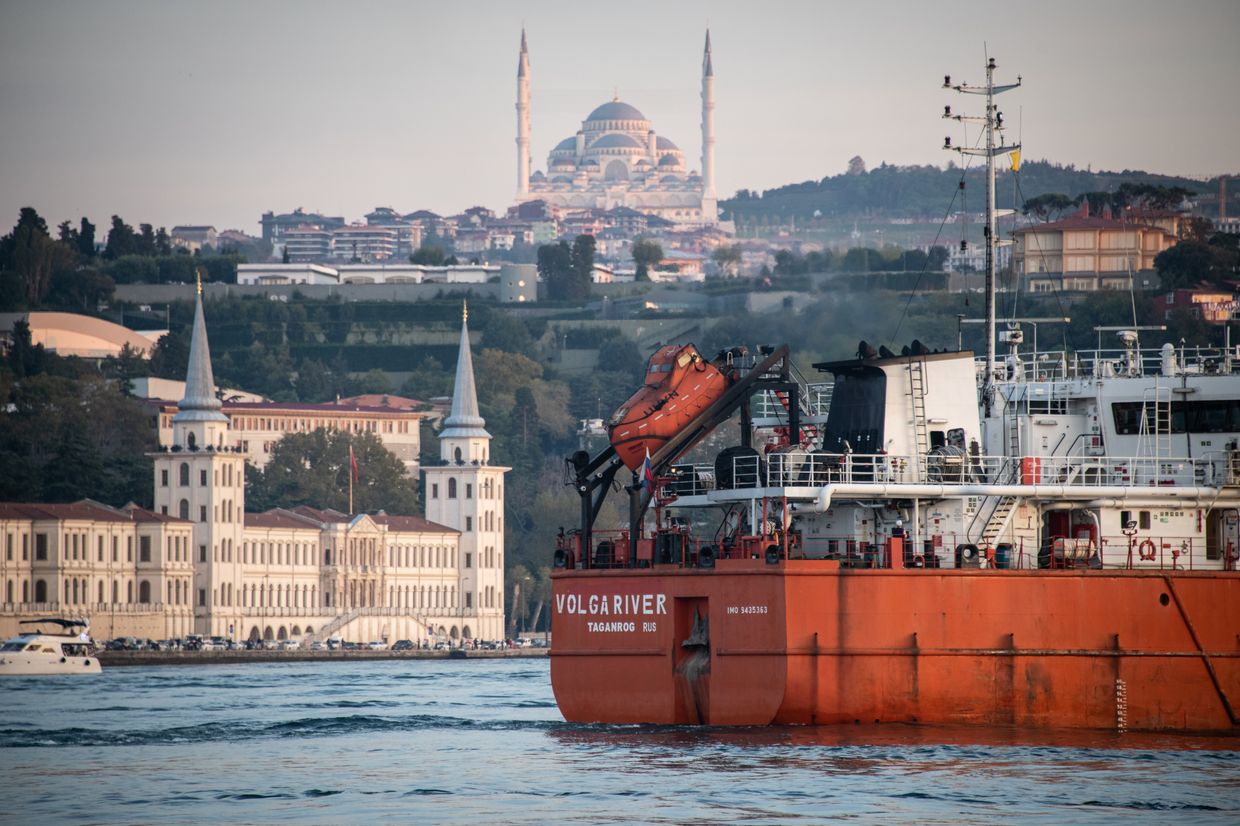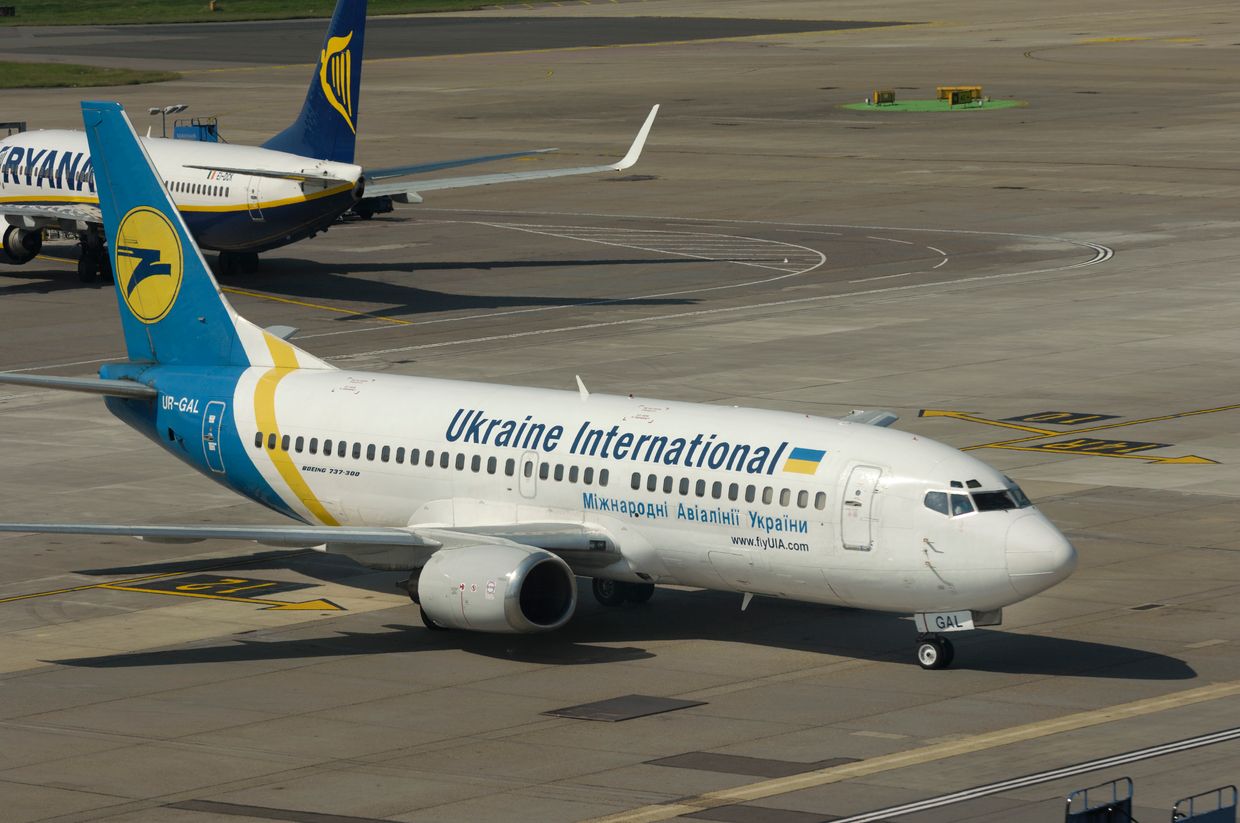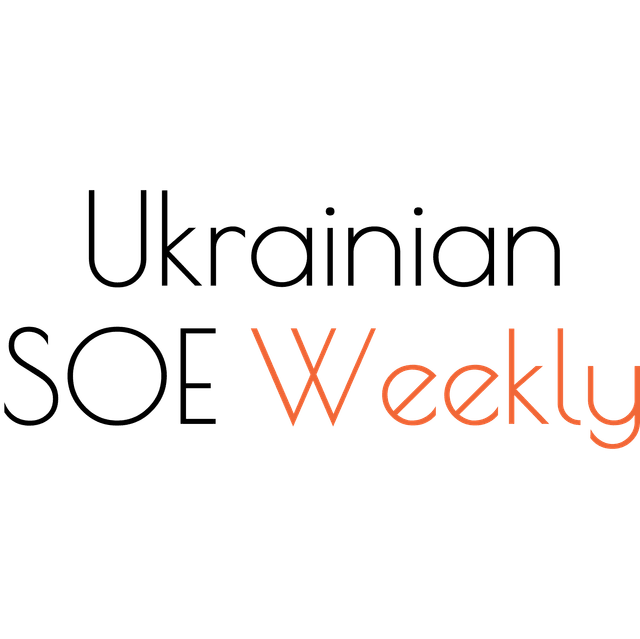Ukraine state-owned enterprises weekly — Issue 155

Editor’s Note: This is issue 155 of Ukrainian State-Owned Enterprises Weekly, covering events from Nov. 18-24, 2024. The Kyiv Independent is reposting it with permission.
Corporate governance of SOEs
State 2025 budget projects Hr 66.01 billion ($1.6 billion) in SOE net profit and dividends. On Nov. 19, the Verkhovna Rada, Ukraine's Parliament, approved Draft Law No. 12000 “On the State Budget of Ukraine for 2025."
According to that law, the state budget projects a revenue of Hr 66.01 billion ($1.6 billion) in SOE net profit and dividends. This would make up 2.85% of the expected state budget revenues, which are projected at Hr 2.32 trillion ($55 billion).
Ukrenergo gets a new executive board member. On Nov.22, Ukrenergo announced that Vitalii Zaichenko, director for managing the Integrated Power System (IPS of Ukraine) and chief dispatcher of Ukrenergo, joined the company’s executive board.
Zaichenko will continue performing his responsibilities as the chief dispatcher, the company said. He will also oversee the coordination of parallel operation of the IPS of Ukraine with ENTSO-E.
According to Ukrenergo, Vitalii Zaichenko began his career as an engineer specializing in the optimisation of electric modes at Ukrenergo back in 1996. He actively participated in creating the Burshtyn TPP Island and enabling the synchronous operation of the IPS of Ukraine with ENTSO-E, the company added.
As we wrote in Issue 146, on Sept. 2, Ukrenergo’s supervisory board dismissed the company’s CEO Volodymyr Kudrytskyi by a majority vote. The board appointed executive board member Oleksii Brekht as an acting CEO and decided to hold a competitive selection for a new CEO.
On the same day, Daniel Dobbeni (independent member and supervisory board chair) and Peder Andreasen (independent member) announced that they had filed their resignation notices.
On Sept. 10, Ukraine and the International Monetary Fund (IMF) reached a staff-level agreement on the fifth review of the four-year Extended Fund Facility (EFF) Arrangement. Subject to approval by the IMF Executive Board, Ukraine will have access to about $1.1 billion. According to the IMF’s release, the full supervisory board of Ukrenergo should be re-established by end-December 2024.
As we wrote in Issue 148, on Sept. 20, the Energy Ministry in its capacity as Ukrenergo’s general shareholders meeting decided to hold a competitive selection for three independent members of the company’s supervisory board. The fourth independent member will be elected in parallel under a previously launched procedure, the Ministry added back then.
The selection of all board members — four independent and three state representatives — is scheduled to be completed by Dec. 9. The first and foremost task of the new supervisory board would be to conduct a transparent competitive selection of Ukrenergo’s CEO, the ministry also said.
HACC does not extend pre-trial restrictions for Kobolyev. On Nov. 20, the Anti-Corruption Action Center (AntAC) said that the High Anti-Corruption Court (HACC) had declined to extend pre-trial restrictions for former Naftogaz CEO Andriy Kobolyev.
According to AntAC, the term of pre-trial restrictions for Kobolyev expired on Nov. 12. He was required to report any change of residence, refrain from communicating with witnesses, and surrender his passports for international travel.
The Specialized Anti-Corruption Prosecutor’s Office (SAPO) filed a motion with the HACC to extend the term of Kobolyev’s duties on Nov. 1. However, the HACC hearings on Nov. 5 and 8, which were supposed to consider this motion, were cancelled. Instead, on Nov. 1, the HACC granted Kobolyev permission to travel abroad from Nov. 4–25 , AntAC added.
However, no trips abroad occurred, AntAC added, and Kobolyev said that he remained in Kyiv. He added that he has not missed a single court hearing and, despite the end of his restrictions, would not be running away. Kobolyev also said that he would attend the next court hearing, scheduled for Nov. 26, as usual, in person.
As we reported in Issue 71, on Jan. 19, 2023, the National Anti-Corruption Bureau of Ukraine (NABU) and SAPO charged Kobolyev with illegally awarding himself Hr 229 million, part of a bonus given to the Naftogaz team for their victory against Russia’s Gazprom in Stockholm’s court of arbitration in 2018. Hr 229 million was $8.8 million or €7.6 million at the time when bonuses were awarded.
On Aug. 9, 2023, HACC decided to extend the Hr 229 million bail ($6.1 million or €5.6 million at that time) for another two months and left Kobolyev’s procedural obligations, including pre-trial restrictions, unchanged. See SOE Weekly’s Issue 99 for details.
On Sept. 25, 2023, HACC removed the electronic ankle monitoring device from Kobolyev and halved his bail to the amount already paid, Hr 107 million ($2.9 million or €2.8 million). See Issue 104 for more detail.
As we reported in Issue 113, on Nov. 29, 2023, SAPO said that it filed abuse of office charges against Kobolyev. On Nov. 30, 2023, at the first preparatory hearing on Kobolyev’s charges, HACC granted the SAPO prosecutor’s motion and extended his procedural duties until Jan. 30, 2024.
On Dec. 14, 2023, following the results of the preparatory meeting, the panel of judges at the HACC denied the defense’s request to return the indictment, scheduled a hearing on the merits, and commenced a hearing in the Kobolyev case. Since then, the HACC has constantly extended the pre-trial restrictions for Kobolyev. See Case No. 991/10459/23.
In June 2024, Oleksiy Nosov, the lead attorney and communicator in the Kobolyev case on the part of the defense, was detained for a suspected attempt to bribe NABU and SAPO in an unrelated case, after which HACC set bail for him. The case involves an alleged theft of Hr 716 million ($17 million) worth of electricity from Ukrenergo by a group led by Mykhailo Kiperman, a businessman reportedly associated with the Privat group.
For an extended background on the Kobolyev case, see SOE Weekly’s Issues 71, 72, 73, 77, 78, 79, 83, 84, 88, 91, 99, 104, 113, and 136.
For a detailed analysis of this case from a corporate governance perspective, see series of columns by SOE Weekly team members Andriy Boytsun, Oleksandr Lysenko, and Dmytro Yablonovskyi: Are Kobolyev’s bonuses a threat to corporate governance reform? Part 1, Part 2, Part 3, Part 4, and Part 5.
Banks
Ukrainian banks post cumulative net profits of Hr 117.63 billion ($2.8 billion) in January-September 2024; state-owned banks make 63% of the total, Opendatabot reported.
The data provider also noted that despite the tax, which increased from 18% to 25% this year, the total net profit is 7% higher than the Hr 109.85 billion recorded over the same period of 2023. However, it is somewhat lower if the 2023 profits are converted into euros at the 2023 rate, €2.77 billion.
As we reported in Issue 113, in 2023, the Verkhovna Rada adopted a law increasing taxes for banks, with some of the key changes concerning the income tax rate. That rate had been 18%, but the law introduced a windfall income tax of 50% for 2023, applied retrospectively. The income tax as from Jan. 1, 2024 was then set at 25%.
However, that rate has also been recently increased to 50% retroactively for 2024 as part of the tax increase bill, Draft Law No. 11416-d. The law was adopted by parliament on Oct. 10, but it is yet to be signed by the president to become effective. This means that, once the law is effective, Ukrainian banks will pay Hr 58.82 billion ($1.4 billion) in income taxes for January-September 2024 alone.
Five state-owned banks accounted for 63% of Ukrainian banks’ total profits:
- As usual, PrivatBank earned the largest share of profits, amounting to UAH 48.35 billion (€1.05 billion), or 65.2% of the sum of state-owned banks’ profits. PrivatBank made 11% more than in the first nine months of 2023, Opendatabot added.
As we wrote in Issue 119, the bank reported a net profit of Hr 37.8 billion ($909 million) in 2023. As we reported in Issue 129, PrivatBank paid Hr 50 billion ($1.2 billion) in taxes and dividends. This was as much as 3% of total projected state budget revenues for 2024.
- Oschadbank ranked second earning Hr 11.84 billion ($285 million), or 16% of state-owned banks’ profits.
As we reported in Issue 128, Oschadbank earned a record Hr 6 billion ($144 million) profit in 2023. In Issue 121, we wrote that Oschadbank paid the state the first half of the 2023 dividends, Hr 0.7 billion ($16.8 million).
- Ukreximbank is third with Hr 5.87 billion, or $141 million (7.92%).
- Ukrgasbank earned Hr 4.67 billion, or $112 million (6.3%).
- The recently nationalized Sense Bank ranked fifth earning Hr 3.38 billion, or $81 million (4.6%).
As we reported earlier, Sense Bank, previously owned by sanctioned Russian oligarchs Mikhail Fridman, Petr Aven, and Andrey Kosogov, was nationalized in late July 2023. See more in our Issue 98.
As we wrote in Issue 132, Ukrainian banks posted combined profits of Hr 40 billion ($961 million) in Q1 2024, with state-owned banks making 60% of the total.
As we reported in Issue 146, in January-July 2024, banks’ cumulative profits were Hr 120 billion ($2.8 billion). State-owned banks made 63% of the total.
Energy sector
Ukrnafta acquires a 51% stake in Shell’s Ukrainian petrol station chain, becoming the largest player in the market. On Nov. 19, Naftogaz Group announced that Ukrnafta, one of its subsidiaries, had signed an agreement with Shell to acquire a 51% stake in Alliance Holding LLC.
The price of the deal was not disclosed. EP’s source at Ukrnafta also refused to name the price, saying that it was “very reasonable." According to EP’s and Forbes Ukraine’s sources, the main part would be covered by credit funds.
According to EP, if the deal is successfully completed, Ukrnafta’s 547 filling stations would be joined by 118 Shell stations, making Ukrnafta the largest player in the retail fuel market in Ukraine.
In the coming days, Ukrnafta and Shell will file their application for merger clearance by the Antimonopoly Committee of Ukraine (AMCU), a prerequisite for completing the transaction. Following approval, the company will be able to complete the transaction and assume all shareholder rights and obligations, Naftogaz added.
Shell ranks among the top 10 chains in Ukraine in terms of sales, with 118 operating filling stations. It was ranked No. 9 for fuel sales in the first half of 2023 and No. 7 for the number of stations, most of which are located in high-traffic areas, Naftogaz also said.
According to Ukrnafta’s CEO Sergii Koretsky, the company’s supervisory board approved this acquisition because it aligns with Ukrnafta’s development strategy. All Shell’s filling stations would be rebranded over the course of the year. Existing B2B contracts would be fully fulfilled, and its staff of 1,550 employees retained, Koretsky explained.
Forbes Ukraine’s source at Ukrnafta also did not rule out the possibility of the company attempting to acquire the 49% stake held by State Property Fund of Ukraine (SPFU) to gain full ownership of the chain.
As we reported in May 2024 (Issue 130), the SPFU said that it obtained control over 49% of the share capital of Alliance Holding LLC, which operates Shell petrol station chain in Ukraine.
Alliance Holding was previously owned by Eduard Khudainatov, a former top manager of the Russian state-owned company Rosneft, who also owns Independent Oil and Gas Company. In June 2022, he was sanctioned by the European Union, and in October 2022, by Ukraine.
As we also wrote in Issue 130, on Oct. 4, 2023, the Justice Ministry filed a lawsuit with the HACC to seize Khudainatov’s assets, which included Alliance Holding.
In January 2024, the HACC refused to seize a stake in Alliance Holding. The reason was that Shell had increased its stake in the Ukrainian subsidiary after the full-scale invasion to 97.4% via two recapitalisations. The share of the company, which the Justice Ministry associates with Khudainatov, was diluted to 2.6%.
The Justice Ministry appealed, and on April 2, the Appeals Chamber of the HACC allowed the nationalization of a 49% stake in Alliance Holding LLC.
According to Forbes Ukraine, the court agreed with the ministry’s argument that Shell had diluted Khudainatov’s stake after he was sanctioned. “There has been a violation of Ukraine’s public order and a dilution of the sanctioned person’s share bypassing the sanctions,” the media’s source said.
Shell then said that Ukraine’s “unjustified appropriation of (the company’s) foreign investments and assets is contrary to international law protecting international investors.” The company would do everything it could to protect its employees, assets, investments, and reputation, Shell added.
As we reported in November 2024 (Issue 154), the SPFU said that it was preparing to privatize its 49% stake in the Shell petrol station chain.
Ekonomichna Pravda (EP) said that Shell's history in Ukraine was complicated. At first, the company was forced to abandon a gas production project in Donetsk oblast, followed by the annexation of Crimea and the loss of some petrol stations. Later, Shell terminated the agreement on gas production in Kharkiv oblast.
After that, according to the market participants interviewed by EP, it was only a matter of time before Shell completely exited the Ukrainian market. EP also said the reason was the HACC’s decision (discussed above) to seize 49% of Alliance Holding from Khudainatov. According to the media outlet’s sources, negotiations on the possible sale of the stake began in the summer of 2024.
Forbes Ukraine’s source confirmed this, noting that Shell did not want to be in partnership with an unpredictable company that would win the SPFU auction.
This is not the first time since Russia’s full-scale invasion that Ukrnafta has gained control over other petrol station chains.
As we reported earlier, Ukrnafta manages the seized assets of the Glusco group. On March 14, the AMCU allowed Ukrnafta to take over the management of Glusco’s assets — see Issue 123. On March 15, Ukrnafta and ARMA said that they signed acts of acceptance for the transfer of Glusco assets. – see Issue 124.
As we wrote in Issue 137 (June 2024), Ukrnafta also got permission to manage the seized Tatneft Group’s assets. According to Ukrnafta, the assets in Poltava and Kharkiv oblasts include petrol stations, oil depots, and other commercial properties — a total of 110 units.
See Issues 99, 100, 131, and 137 for more detail.
EBRD lends 50 million euros to help Kyiv prepare for winter, the bank’s press office announced on Nov. 19. This loan will help to ensure the provision of vital municipal services in Kyiv and mitigate the effects of the ongoing war, the EBRD explained.
A first-loss risk cover guarantee from the EU will cover 25% of the loan. This guarantee is vital to the transaction, helping the city and its key municipal utility to immediately address critical liquidity needs and ensure uninterrupted provision of essential public services, the bank also said. The EBRD loan will be co-financed by a 5-million-euro grant from the U.S.
“The loan will provide liquidity to the city’s municipal district heating utility, Kyivteploenergo, ensuring that it remains operational and can retain its existing workforce, continuing to provide vital heating and electricity to the city’s residents (including internally displaced Ukrainians who have moved to Kyiv), businesses and other municipal companies,” the EBRD added.
According to the EBRD, Kyivteploenergo also generates a significant amount of electricity for Kyiv and the country as a whole. These emergency funds are expected to support repairs to the city’s damaged infrastructure in preparation for the impending winter heating season.
Italy confirms its commitment to provide a 200-million-euro loan for Ukrhydroenergo alongside the EBRD, the company’s press office announced on Nov. 21. According to the agreement, signed in February 2024, the loan will be used to purchase critical equipment for the Dnipro and Seredniodniprovska hydroelectric power plants (HPPs), as well as to provide emergency liquidity support to Ukrhydroenergo to ensure the company’s sustainability.
As we wrote in June 2024 (Issue 135), Prime Minister Denys Shmyhal and EBRD President Odile Renaud-Basso signed a memorandum of understanding on an energy security emergency response program.
Under the agreement, the EBRD will mobilize additional funding of more than 300 million euros to boost Ukraine’s energy security. The funds are designated for Ukrenergo, Ukrhydroenergo, and Ukrnafta. See Issue 135 for more detail.
Privatization
The 2025 state budget projects Hr 3.2 billion ($76 million) of privatization proceeds. According to the Draft Law No. 12000, approved by the Verkhovna Rada on Nov. 19, the state budget projects Hr 3.2 billion ($76 million) in privatization proceeds for 2025.
That is as little as 0.13% of the expected state budget revenues in 2025, which are planned at Hr 2.32 trillion ($55 billion).
This includes projected revenues from both large and small-scale privatization.
In the past years, both planned and actual revenues from privatisation have been historically low.
As we wrote in Issue 114, the 2023 annual revenue from privatization to the state budget was projected to be Hr 6 billion, or around $144 million. However, the SPFU failed to fulfil this plan (se Issue 114 for more detail).
Note that in 2023, only small-scale privatization auctions were held, and no large-scale privatisation deals were made.
As we wrote earlier, the state budget envisages Hr 4 billion ($96 million) of privatization proceeds for 2024. As we discuss below, the SPFU has already achieved that target.
The winning bidder pays for UMCC. On Nov. 18, the State Property Fund of Ukraine (SPFU) announced that Cemin Ukraine LLC, the winner of the privatization auction, had fully paid Hr 3.94 billion ($95 million) for United Mining and Chemical Company (UMCC).
According to the privatisation terms, the winner must maintain UMCC’s core business and invest at least Hr 400 million ($9.6 million) in technical re-equipment and modernization. In addition, it must pay off overdue accounts payable (Hr 609 million or $14.6 million as of the end of March 2024) and wage and budget arrears, if any, at the time of transfer of ownership, the SPFU explained earlier.
As we wrote in Issue 151, the SPFU sold UMCC on Oct. 9. According to the SPFU and Prozorro.Sale, the only bidder, and, accordingly, the winner, is Cemin Ukraine LLC, owned by Azerbaijani businessman Nasib Hasanov.
Hasanov is the owner of the Azerbaijani NEQSOL Holding, which is known in Ukraine for being the owner of the telecom company Vodafone Ukraine. In Azerbaijan, NEQSOL also owns the telecom operator Bakcell.
Besides, NEQSOL has extensive experience in the mining business. See more on Hasanov in Issue 151.
UMCC is Ukraine’s largest titanium ore concentrate mining and processing company. It comprises the Vilnohirsk Mining and Metallurgical Plant in Dnipropetrovsk Oblast and the Irshansk Plant in Zhytomyr oblast.
This was not the first attempt to sell the company. As we wrote in Issue 33 three years ago, the UMCC privatization auction was scheduled to take place on Aug. 31, 2021. Later, in SOE Weekly’s Issue 41, we reported that the SPFU cancelled that auction because it only had one qualified bidder.
The media published a list of participants allegedly interested in UMCC assets. Some of them said that the asset was not well prepared for privatisation, and they did not consider the auction terms fair. Others claimed that the starting price was unreasonable. It was reportedly impossible to estimate the company’s mineral deposits.
The SPFU’s auction commission set Oct. 29, 2021 as the new auction date, but that auction was also cancelled (see Issue 49 for more). So was the following auction on Dec. 20, 2021 (see Issue 57 for more detail).
See more on the previous attempts to sell UMCC in our Issues 33, 41, 49, 56, and 57.
As we reported in Issue 106, the SPFU planned for UMCC to be one of the first large companies to be privatized. However, as we wrote in Issue 109, then acting head of the SPFU Oleksandr Fedoryshyn said later in October 2023 that the SPFU was going to offer investors to buy UMCC in a single package with Demurinsky Mining and Processing Plant.
Vitaliy Koval, the newly appointed head of the SPFU, confirmed this later in an interview in January (see our Issue 117). In effect, this suggested that the SPFU’s previously announced plans to privatize UMCC as one of the first targets would be seriously delayed, if not put aside.
However, the SPFU’s communication on the matter in May suggested that the Fund discarded the idea of bundling UMCC and Demurinsky in a single lot. The SPFU auction commission determined the terms of UMCC’s privatization on May 23, setting the starting price at Hr 3.9 billion (around $90 million at that time). See Issue 133 for more detail.
As we wrote in Issue 150, the National Anti-Corruption Bureau of Ukraine (NABU) completed the pre-trial investigation into the Dmytro Sennychenko case, alleging the SPFU’s former head and his accomplices of embezzling millions from state-owned enterprises, including Odesa Portside Plant (OPZ) and UMCC in 2019-2021.
See our Issues 80, 83, 105, 106, 109, 117, 114, 131, and 150 for detail.
The sale of UMCC increased privatization proceeds to Hr 9.26 billion ($222 million), the SPFU reported on Nov. 18. Thus, SPFU said, it exceeded its annual privatization revenue target for 2024 by more than 2.3 times.
Besides, the buyers’ obligations to pay accounts payable of the SOEs they purchased in the amount of Hr 1.597 billion ($38 million) would also be fulfilled.
As we wrote in Issue 114, the 2024 state budget projected the privatization revenue at Hr 4 billion (around $96 million). According to a recent SPFU report, privatization generated Hr 2 billion ($48 million) in January-August 2024. All these proceeds were from small-scale privatization.
As we reported in Issue 154, the sale of the Hotel Ukraina, the first large-scale privatization lot, increased privatization proceeds to Hr 5.7 billion ($137 million).
In other words, as we wrote, the privatization of Hotel Ukraina alone has generated more revenue than all small-scale privatizations since the beginning of this year. After the buyer paid up as required by the regulations, the SPFU’s privatization revenue plan for 2024, however modest, was achieved for the first time in many years.
The sale of UMCC was the second successful auction in the framework of large-scale privatization. The SPFU plans to hold another large-scale privatization auction by the end of 2024. The auction for the sale of AEROC, seized from sanctioned Russian oligarch Molchanov, is scheduled for Dec. 19. The starting price is Hr 965 million ($23 million). See Issue 152 for more detail.
Ukrainian SOE Weekly is an independent weekly digest based on a compilation of the most important news related to state-owned enterprises (SOEs) and state-owned banks in Ukraine.
The contents of this publication are the sole responsibility of the editorial team of the Ukrainian SOE Weekly.
The SOE Weekly is produced and financed by Andriy Boytsun. Communications support is provided and financed by CFC Big Ideas. The SOE Weekly is not financed or influenced by any external party.
Editorial team: Andriy Boytsun, Oleksiy Pavlysh, Dmytro Yablonovskyi, and Oleksandr Lysenko.


